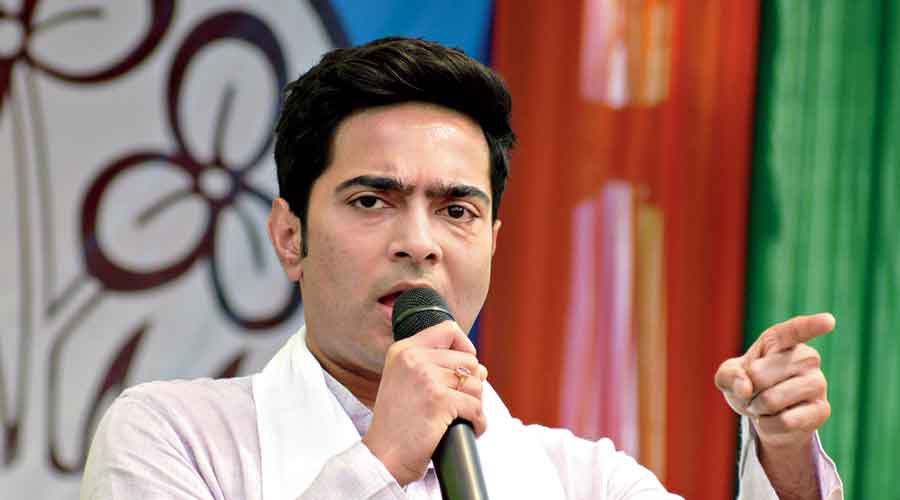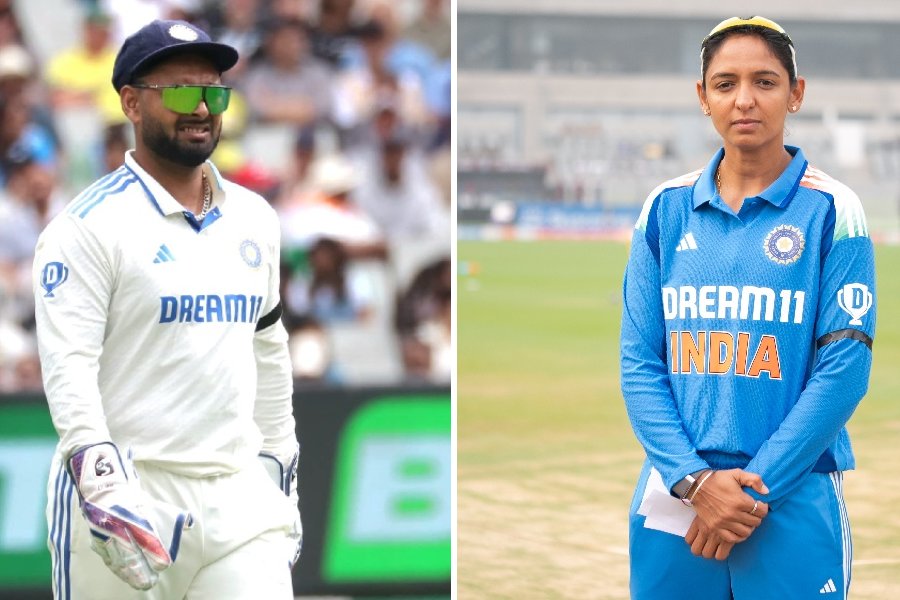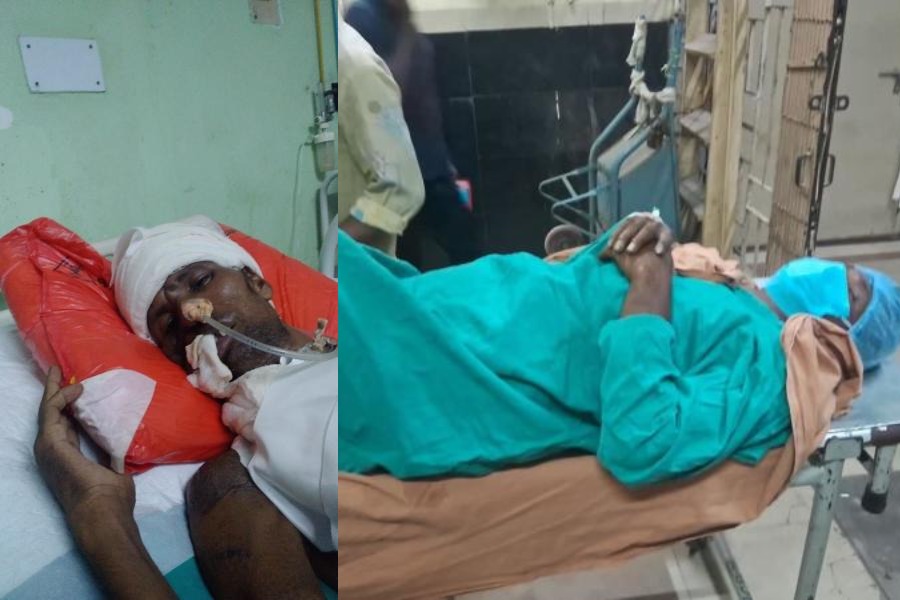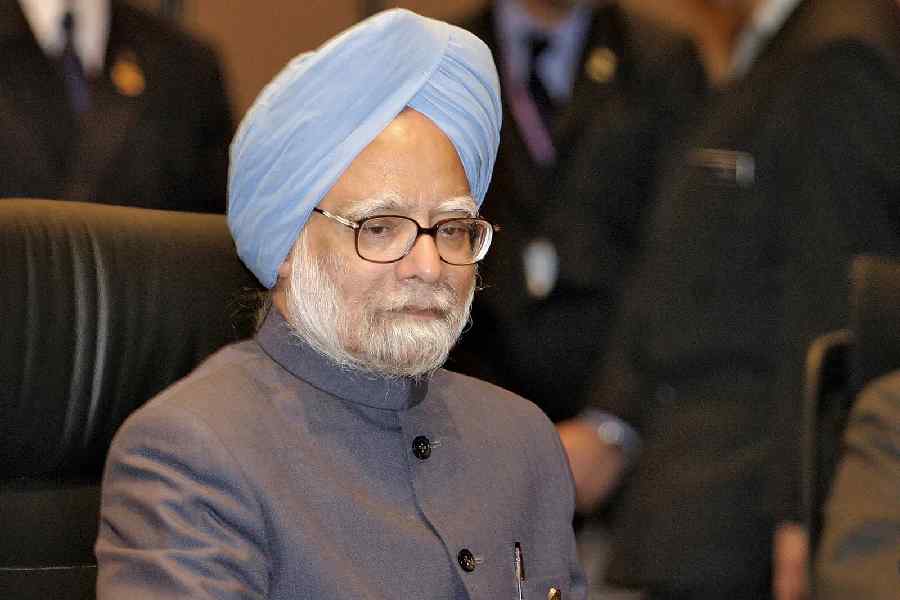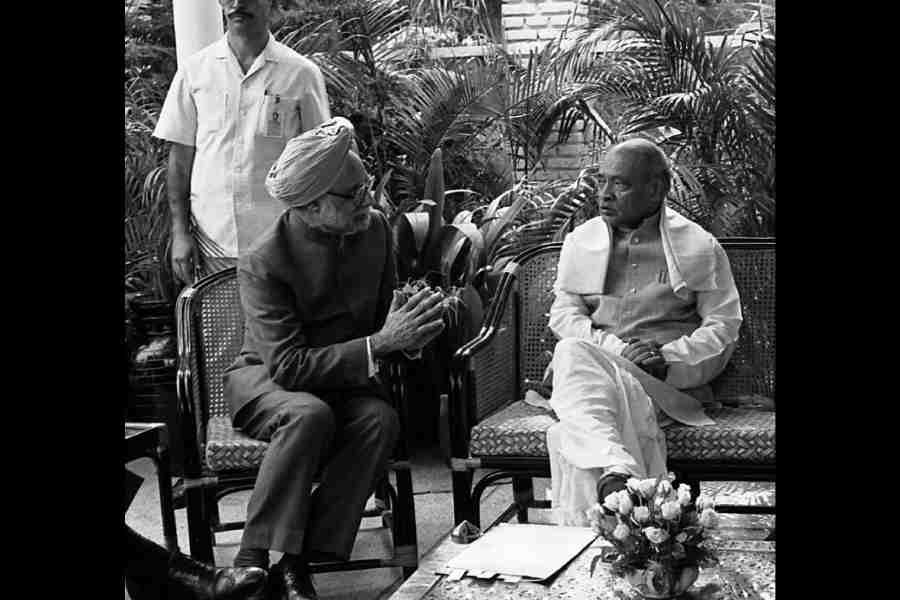The Trinamul Congress on Monday announced a slew of organisational changes in line with the party’s newly-adopted “one person, one post” policy and as a part of its bid to further consolidate its position in Bengal.
The overall pattern of the changes, said several seniors in the party, has a discernible imprint of the party’s national general-secretary Abhishek Banerjee, whose appointment to the post took place on June 5, the same day the policy was adopted.
Attention, said sources, was paid to rewarding performers in the Assembly elections and sidelining of those who could not deliver even amid such a historic mandate in Trinamul’s favour. They said changes were also made to minimise conflict, a priority area for the supreme leadership.
“This was easier said than done, which is why it took nearly two-and-a-half months,” said a Trinamul vice-president. “Inputs from Abhishek’s office were given importance in many of the changes,” he added.
Several seniors in the party such as Jyotipriya Mullick, Malay Ghatak, Soumen Mahapatra, Pulok Ray, Arup Roy, Tapan Dasgupta, Gautam Deb, Akhil Giri, Mohammad Ghulam Rabbani and Biplab Mitra were excluded from key organisational posts in their districts or regions.
Among the Young Turks, the likes of Mahua Moitra, Mausam Benazir Noor and Partha Pratim Roy were conspicuous by their exclusion from the list of organisational appointments.
“Winning back most of the 18 Lok Sabha seats lost to the BJP in 2019, in the general election of 2024, is of foremost priority for the party. That was given pre-eminence in the decision-making,” said the party vice-president, attributing to that intent the division of the 23-district state into 35 organisational units for Trinamul, more in line with the 42 Lok Sabha constituencies.
Ten new names were added to the state committee, with Subhasish Batabyal and Mohammed Sohrab being elevated as state vice-presidents, and the likes of Saokat Molla and Krishnendu Narayan Chowdhury appointed as state general-secretaries.
“The focus was on decentralisation, on appointing people who can devote more time to the party organisation. Increased focus on districts was part of the strategy,” said Trinamul secretary-general Partha Chatterjee in the evening.
The party implemented Mamata’s plan for dividing 11 districts — mostly those of south and central Bengal, where the party performed very well — into smaller organisational units. The small district of Kalimpong was included in the Darjeeling hills unit.
North 24-Parganas is the only district that was divided into more than two units, under Dum Dum-Barrackpore, Barasat, Basirhat and Bongaon. The district is the state’s most populous, with 33 Assembly seats and five Lok Sabha constituencies.
“In the new structure, every district got one chairman, one parent party president, one women’s wing president, one youth wing president and one labour wing president. Additionally, every major town of the district got a town president, and every key block got a block president,” said a Trinamul Rajya Sabha member.
“To occupy these posts, a lot of new faces were brought forward. The young were also given importance. All the youth wing appointees are less than 40 years old,” he added.

